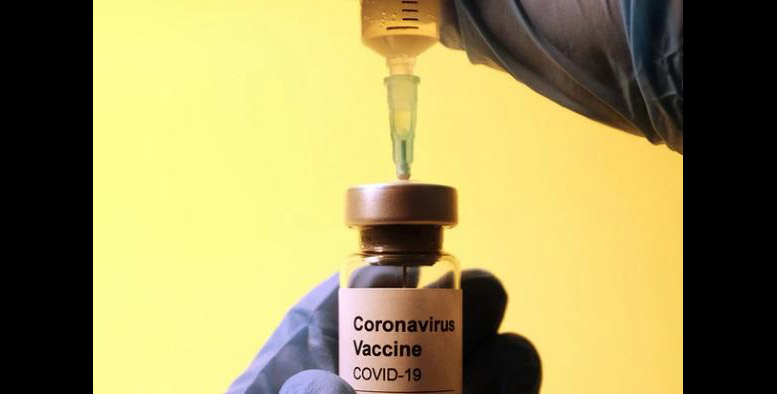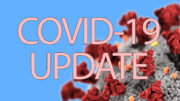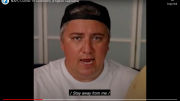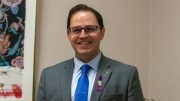By Jake Cardinal, Local Journalism Initiative Reporter
(ANNews) – On February 11, 2021 Jocelyn Formsma, Executive Director of the National Association of Friendship Centres (NAFC), appeared on the First Nations Health Managers Association (FNHMA) Weekly Virtual Town Hall podcast to discuss vaccinations for urban Indigenous people and the advocacy that the NAFC is pursuing to make it happen.
“I should preface this by saying that anything we say that is critical of [the vaccine] response… is not to be interpreted at the expense of what is happening on-reserve in the North and for First Nations, Inuit, Metis government,” began Formsma.
“Those are our kin, that’s our family, those are our friends… we feel like we can be a voice for the urban people that doesn’t have to be at the expense of anybody. It shouldn’t have to be one or the other.”
“We’re trying to add a voice to this conversation to make sure we’re not leaving anybody behind,” said Formsma.
“We’ve been having a lot of questions like: why urban Indigenous?” said Formsma, who then answered the question with “the same co-morbidities that exist on reserve, exist in the urban centres.”
Through a series of public forums with urban working groups, Formsma said that the NAFC is collecting information and documenting what is happening “on the ground” in order to develop plans and strategies for organizations to use. “We’ve developed an issues and barriers document that outlines considerations we know are really important. Ensuring that strategies exist for folks who are homeless or unsheltered; children and young people who are a part of child family services; Indigenous elders and seniors; people with disabilities and special needs.”
One of the issues that the NAFC is tackling is transportation within major metropolitan areas so that “if you have a vaccine clinic people can actually get to it,” Formsma said. She then went on to speak on how the NAFC is working with local organizations to facilitate transportation.
Another issue is developing different out-reach strategies for specific groups, such as “urban Inuit, urban Metis, urban First Nations, two-spirit, LGBTQIA. Making sure that we’re not leaving anyone out.” The NAFC is also working on how supporting organizations can help with vaccine roll-out by creating unique and innovative strategies such as, “rolling out mobile clinics to get to sites where people are, as opposed to making them travel.”
“Fifty to sixty friendship centres are ready to take on a vaccine clinic,” stated Formsma. “They are able to get vaccine commitment from their respective provinces.”
Formsma said they have done the majority of the work to help facilitate partnerships “because ultimately, the decision is going to happen at the provincial level.”
“Friendship centres are not decision-makers. We are not involved at all in roll-outs… I think it’s really important that when it comes to urban Indigenous people and communities that the Federal government has been supportive to the extent that they can be, but this largely falls within provincial jurisdiction,” said Formsma.
“The majority of us are urban so that’s the population we’re trying to reach,” she concluded. “We really need to make sure that we have those urban strategies.”
Dr. Valerie Gideon, Associate Deputy Minister at Indigenous Services Canada (ISC), also appeared on the FNMHA Townhall to discuss current COVID statistics for Indigenous people.
“What we were able to report yesterday is that we are continuing to see some positive signs among First Nations on reserve – and I recognize… that the data we have is absolutely incomplete – but with respect to First Nations on reserve, the curve is beginning to flatten,” said Dr. Gideon.
“The rate of active cases in First Nation communities has decreased by more than fifty percent over the past three weeks.”
“I will note that Manitoba continues to trend down, the number of active cases being below two-hundred. Saskatchewan however, is accounting for 1/3 of all First Nation on reserve cases – as is Alberta.”
In terms of the vaccine, as of Feb. 12 over 78,000 COVID-19 vaccine doses have been administered in 400 First Nations, Inuit, and Territorial communities.
That is reaching over 12% of the population vaccine dose target at a rate that is 6 times that of Canada, said Dr. Gideon.
A number of First Nations in Alberta have already started their vaccinations.
In Alexis Nakoda Sioux Nation, on-reserve Elders (aged 60+), frontline workers, and band members labelled as “high risk” will be able to receive their first Covid-19 vaccine February 16-18, 22 & 23, 2021, from 9:00 am – 3:45 pm.
If you qualify under the information, call Alexis Health Services to speak with a nurse and schedule an appointment.
In Siksika, their Health Services announced that COVID-19 vaccine doses at the Siksika Immunization Clinic have been allocated as first dose vaccines for Siksika Nation Elders who are 65 years of age and over, and second doses for Siksika Health Frontline workers.
“We will continue to advocate for additional COVID-19 vaccine doses for vulnerable nation members and caregivers. At this time we will move forward with Elder immunization, as our Nation members 65 and over are at greater risk of serious illness if they contract COVID-19,” said the statement.
The Siksika Health Services gave their members advice that is suited for all First Nations as well as the public-at-large. Be patient and for the time being, follow the health protocols – wear a mask, exercise social and physical distancing, and wash your hands frequently.
“A free vaccine will eventually be available for everyone, including the many priority groups. Initially, there will be a limited supply of vaccine, so immunization is being prioritized, in accordance with public health guidelines, for those at risk of serious illness from COVID-19.”
The clinic began with a prayer from Francis ‘Butch’ Wolf Leg: “To our health and essential workers, thank you for your service above and beyond the call of duty. With the Creator’s guidance we are reminded of the previous lives that we have. For those who have succumbed at this time, and who have gone on their journey ahead of us, we remember them. Each and every person is important to all of us.
“I was asked if I am anti-vaccine and I said: No, I’m anti-dying.”
The First Nations Health Managers Association (FNHMA) Weekly Virtual Town Hall is a podcast that features speakers from different organizations who provide credible and reliable information, resources, and updates about what their organizations are doing to combat COVID-19. Tune in on Thursdays at 1 pm EST at ihtoday.com. Click here for earlier episodes.






Be the first to comment on "Provinces are reminded to consider urban Indigenous residents as priorities for vaccine roll-out"